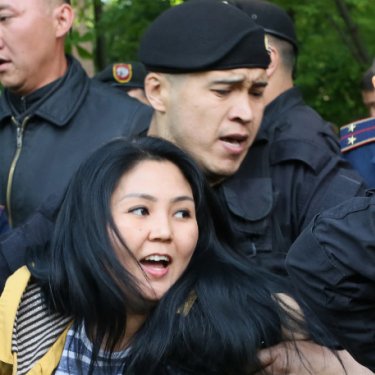Heavy Internet censorship in Kazakhstan

Reporters Without Borders (RSF) condemns the massive Internet censorship that accompanied today’s opposition protests in Kazakhstan and calls on interim President Kassym-Jomart Tokayev to abandon the repressive practices of his predecessor, Nursultan Nazarbayev.
Many news websites were inaccessible at dawn, including those of Radio Azattyk, the news agency Ferghana and the newspaper Uralskaya Nedelia, as well as the Vlast.kz, Informburo.kz, Exclusive.kz, Holanews.kz and Village.kz news sites.
Access to Facebook, Telegram, YouTube and Instagram was disconnected at midday. In some places, mobile phone users reported problems connecting to the Internet. As in the past, the censorship was prompted by peaceful demonstrations throughout the country. This time, the protests were called by Mukhtar Ablyazov, a Kazakh oligarch and government opponent now living in exile.
“There is no justification for this massive obstruction of the Kazakh public’s right to information,” said Johann Bihr, the head of RSF’s Eastern Europe and Central Asia desk. “It is time for the authorities to abandon these repressive practices from an earlier era if they want their reformist discourse to be credible. Internet censorship is one of reasons why Kazakhstan is ranked only 158th in the World Press Freedom Index, a position that reflects badly on its international image.”
Vlast.kz reporter Daniyar Moldabekov, whose coverage of the protests has been much followed in recent months, was arrested without any explanation this morning in Almaty and was held for an hour. Arrests of journalists during protests have become commonplace in Kazakhstan.
The authorities are clearly nervous about the wave of demonstrations since Nazarbayev’s resignation in March after nearly 30 years as president. The “Leader of the Nation” is nonetheless keeping a tight grip on the country’s future and ensuring that continuity is maintained. His designated successor, Tokayev, is the clear favourite in the carefully controlled presidential election scheduled for 9 June.
The regime has constantly tightened its grip on the media and Internet in recent years. The main opposition national newspapers were all banned in 2012, Inernet is tightly controlled, and even media outlets that express little criticism are now being targeted.
Kazakhstan is ranked 158th out of 180 countries in RSF’s 2019 World Press Freedom Index.


